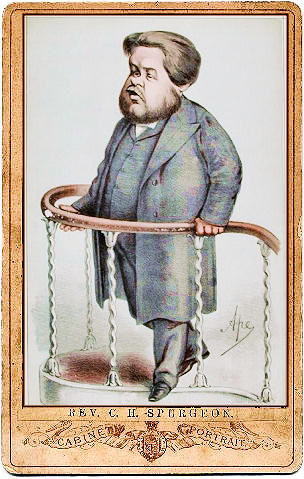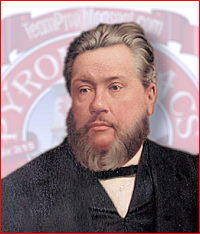by Dan Phillips
Would we all agree that the argument is over about the Trinity, the deity of Christ, the canon, and the nature of the Gospel?

Your instinct is probably to say "Yes"—but, since I'm asking it, you might hesitate, because you suspect a trick question. Your suspicion is both right, and not.
On the one hand, I think it's fair to say that the argument on those matters is over
objectively. That is, it is
over in the sense that the basic facts have been gone over, the Biblical evidence has been well-analyzed and well-sifted from a thousand angles, major opposing arguments have been considered and dealt with, and (at the very least) the broad outlines of an assured answer have been laid out. So the argument is "over" in the sense that the main questions have been asked, and sufficient evidence and answers have been given. Nobody has a good reason for being on the fence.
But on the other hand, is the argument "over" in the sense that nobody's arguing about it anymore?
Clearly not;
wearisomely not. Even on these comment-threads, right here at Pyro, every now and then someone will appear, announcing breathlessly the need for a Reformation on that traditionalistic myth of the Trinity, or brand-new "discoveries" about the nature of the Gospel, or the like. Cults and sects still proclaim error on such subjects and many others.
Such as: Can truth be known? Francis Schaeffer pretty well slapped that down decades ago... but it's baaaaaack. Is the church necessary, can't we all just drink Coke and

eat crackers in our tie-dyeds in the park, because "wherever two or three..."? Been there, did that in the sixties, pretty well grew out of it... yet it's back.
But even on a smaller scale, this is a constant issue for bloggers and other writers. When do you say "Enough"? How many carping little "Yeah-but's" are you obliged to respond to?
I admire the stuffing out of Phil Johnson's patience and persistence. I saw this pattern on a comment thread: after a well-written post, the Comments section furnished some challenges to Phil. Phil answered. Phil clarified. Then Phil re-answered, and he re-clarified... and then we got to the re-re-re's.
Now, I thought at one point that Phil had pretty well put "Finished" to it, and it was over. Objectively, I think it was. Except that it
wasn't—in the sense that Phil's opposition kept talking.
So, if the opposition keeps talking, does that mean an argument isn't over?

If so, then has
any argument about literally
anything ever been over?
What is a reasonable goal for a blogger or author? Suppose a writer sets himself as his goal, "I will move on to another topic when everyone who disagreed with me either convinces me to change my mind, or admits his error and agrees with me." In that case, let's just say he'd better clear his calendar of family, church, work, appointments, eating, and sleeping—
forever!
It can be worse when you're a Big Fish like Phil, or when you illegitimately share that status by association with him (as I do). You're the gunslinger, the fastest draw. You get to be a target for every punk and wanna-be with a sidearm. They swagger in, they misread you. On that basis, they slap down some lame

(but billowy and thunderously-announced)
non-sequiturs, or irrelevancies, or sillinesses. They may link to their web site, blog, or message board. They're desperate for attention, for notoriety, for traffic at their site. They want to be the Big Gun Who Stood Up to _____ about _____.
So what do you do?
To answer is to give them what they want, and begin an endless discussion. They've misread you from the start, and they won't admit it. Will they suddenly become better readers if you put another few hours into it? History says "Probably not." In fact, responding is likelier to generate a few more thousand words of vapid, acid response, and spin an endless cycle.
But if you
don't answer, they will demand that you do. Then they may pout. They certainly will proclaim victory in the silence. In doing this, they prove that they read the Rules of this blog (yes, there are Rules, posted right on the front page) fully as well as they read your post. Which is to say, "Not." This validates your not
wasting taking the time to answer—a point that will as surely elude them as did the point of your original post.
So what
is the right thing to do? My conviction is that it's a Proverbs moment. It isn't a matter of moral-right/moral-wrong, it's a matter of wisdom. You're not morally obliged to slap leather every time some would-be tough guy says "Draw."
Sometimes indeed we should "Answer a fool according to his folly, lest he be wise in his own eyes" (Proverbs 26:5). On the other hand, "If a wise man has an argument with a fool, the fool only rages and laughs, and there is no quiet" (29:9). So sometimes, you have to decide not to "speak in the hearing of a fool, for he will despise the good sense of your words" (23:9).
Paul certainly wasn't one for arguments that had no end. He warned Timothy not to "give heed to fables and endless genealogies, which cause disputes rather than godly edification which is in faith" (1 Timothy 1:4). Paul told Titus that some people just needed to be shut down, because the more they talked, the more damage they did (Titus 1:11). When we direct traffic to such, beyond a certain point (--and where is that point?), are we furthering the damage? In the church context, Paul further told Titus to give two warnings, then show the man and his issues the door (Titus 3:10-11).
So you listen, you pray, you consider the audience, you weight the facts, you look at your calendar and priorities and "honey-do" list, you make a judgment call, you commit it to God—and you
try not to go nuts. Your opponents will make large and damning accusations against you when you step off their merry-go-round. Do your best before God to be sure they're not true.
So how do I keep any semblance of sanity and cheerfulness? Two things chiefly comfort me:
1. The judgment of God. In the final analysis, this
is the Final Analysis. This is the only verdict that
ultimately matters. It's not a cop-out; it's a fact. The throne at which my stewardship will be finally and eternally judged will not be occupied by Pyro readers, dear as you are to me, nor any bloggers anywhere. It will be occupied by the only one who knows all the facts, and all the implications of all the facts. That is both terrifying, and comforting.
2. The public nature of the exchange. I make my case in public, my critics make their case in public. People can read us both. If—I say
if—I make an excellent, compelling, airtight case,

and if readers are nonetheless persuaded when someone does a blustery, lame hatchet job on it... then there's probably nothing I could have done about it. Nothing, except waste irreplaceable time. Hard but undeniable fact:
some folks cannot humanly be persuaded.
Period. "A man convinced against his will/Is of the same opinion still."
But in those situations, my case is out there for all to see. I just hope and pray they'll read and judge fairly.
But if not... oh well!
For me, the argument is over when the facts have been laid out and established to the best of my ability, within my limitations of time and smarts.
And that's
my answer to my question.
If that works for you—terrific!
If not... see above.
POSTSCRIPT: the bulk of this was written some time ago. It's a standalone, a topic I've often thought about for decades. You'd be mistaken to tie it to any particular... any particular anything.

 The offices of Alpha and Omega Ministries were burgled Wednesday night, and virtually all of James White's best-loved technological gadgets were stolen (except for the green laser). That includes his amazing tablet computer, his iPod (with the complete S. Lewis Johnson sermon collection), and his Tungsten T5 Palm device. The burglar alarm malfunctioned.
The offices of Alpha and Omega Ministries were burgled Wednesday night, and virtually all of James White's best-loved technological gadgets were stolen (except for the green laser). That includes his amazing tablet computer, his iPod (with the complete S. Lewis Johnson sermon collection), and his Tungsten T5 Palm device. The burglar alarm malfunctioned.  Ever since I made that post, there's been a frenetic effort to get me to repent of my refusal to join the dogpile against "Slice of Laodicea." I've been beseiged with private e-mails and backhanded with indignant blogposts from the fringes of the evangelical blogosphere, all of them upbraiding me severely for not publicly declaiming Ingrid Schlueter and her blog. Never before have the swamis of tolerance in the blogosphere been so hungry for a negative PyroManiacs post. Apparently, nothing less than a fulminating and final denunciation of everything remotely connected to "Slice" will quell the furor.
Ever since I made that post, there's been a frenetic effort to get me to repent of my refusal to join the dogpile against "Slice of Laodicea." I've been beseiged with private e-mails and backhanded with indignant blogposts from the fringes of the evangelical blogosphere, all of them upbraiding me severely for not publicly declaiming Ingrid Schlueter and her blog. Never before have the swamis of tolerance in the blogosphere been so hungry for a negative PyroManiacs post. Apparently, nothing less than a fulminating and final denunciation of everything remotely connected to "Slice" will quell the furor.

 same time, or how God can keep changing His mind about things, or how two equally-inspired books could contradict each other. His example was the virgin birth. I said there was nothing irrational about the virgin birth, and the conversation simply moved on elsewhere. (I now wish I'd asked instead of stated; still looking for a do-over.)
same time, or how God can keep changing His mind about things, or how two equally-inspired books could contradict each other. His example was the virgin birth. I said there was nothing irrational about the virgin birth, and the conversation simply moved on elsewhere. (I now wish I'd asked instead of stated; still looking for a do-over.)




 omeone pointed out that it's been more than a week since I've written and posted anything substantial on the blog. Quotes from Spurgeon don't count, because I didn't write them.
omeone pointed out that it's been more than a week since I've written and posted anything substantial on the blog. Quotes from Spurgeon don't count, because I didn't write them. I wrote a post, and was about to put it up this morning, when I saw that Frank had already posted. So, since I
I wrote a post, and was about to put it up this morning, when I saw that Frank had already posted. So, since I  10) recently studied it, so we've watched a lot of the classic movies together ("Sands of Iwo Jima," "The Longest Day," etc.). Also, I'm making my way through Band of Brothers.
10) recently studied it, so we've watched a lot of the classic movies together ("Sands of Iwo Jima," "The Longest Day," etc.). Also, I'm making my way through Band of Brothers. "miss." Nearly three thousand moms, dads, husbands, wives, sons and daughters were murdered as they went about the course of their daily, productive, non-military lives. It was no mistake. It was a direct hit.
"miss." Nearly three thousand moms, dads, husbands, wives, sons and daughters were murdered as they went about the course of their daily, productive, non-military lives. It was no mistake. It was a direct hit. open for these terrorists? Good heavens.
open for these terrorists? Good heavens. 
 he case is mournful. Certain ministers are making infidels. Avowed atheists are not a tenth as dangerous as those preachers who scatter doubt and stab at faith. . . .
he case is mournful. Certain ministers are making infidels. Avowed atheists are not a tenth as dangerous as those preachers who scatter doubt and stab at faith. . . .
 Jeff Noble
Jeff Noble  Here's
Here's  of us try to stay up to speed while reading both versions.
of us try to stay up to speed while reading both versions.

 6So we are always of good courage. We know that while we are at home in the body we are away from the Lord, 7for we walk by faith, not by sight. 8Yes, we are of good courage, and we would rather be away from the body and at home with the Lord. 9So whether we are at home or away, we make it our aim to please him. 10For we must all appear before the judgment seat of Christ, so that each one may receive what is due for what he has done in the body, whether good or evil.
6So we are always of good courage. We know that while we are at home in the body we are away from the Lord, 7for we walk by faith, not by sight. 8Yes, we are of good courage, and we would rather be away from the body and at home with the Lord. 9So whether we are at home or away, we make it our aim to please him. 10For we must all appear before the judgment seat of Christ, so that each one may receive what is due for what he has done in the body, whether good or evil.  I’m going to get to my point here quickly so Dan doesn’t call the bandwidth accountants on me as I have just crossed over 1000 words in this post.
I’m going to get to my point here quickly so Dan doesn’t call the bandwidth accountants on me as I have just crossed over 1000 words in this post. an anything new be said about Charles H. Spurgeon? Perhaps not, and yet I should be guilty of injustice to myself and to my readers if I failed to pay my love tribute to the most extraordinary preacher of the pure Gospel to all Christendom whom England produced in the last century.
an anything new be said about Charles H. Spurgeon? Perhaps not, and yet I should be guilty of injustice to myself and to my readers if I failed to pay my love tribute to the most extraordinary preacher of the pure Gospel to all Christendom whom England produced in the last century. I heard him when he was a youth of twenty-two years, in his Park Street Chapel; I heard him several times when he was at the zenith of his vigor; I spent many a happy hour with him in his charming home. On my last visit there I had a "good cry" when I saw his empty chair in its old place in the study.
I heard him when he was a youth of twenty-two years, in his Park Street Chapel; I heard him several times when he was at the zenith of his vigor; I spent many a happy hour with him in his charming home. On my last visit there I had a "good cry" when I saw his empty chair in its old place in the study. The most interesting object in the library was a small file of his sermon notes, each one on a half sheet of note paper, or on the back of an ordinary letter envelope. When I asked him if he "wrote his sermons out," his answer was: "I would rather be hung." His usual method was to select the text of his Sunday morning sermon on Saturday about six or seven o'clock, and spend half an hour in arranging a skeleton and put it on paper; he left all the phraseology until he reached the pulpit.
The most interesting object in the library was a small file of his sermon notes, each one on a half sheet of note paper, or on the back of an ordinary letter envelope. When I asked him if he "wrote his sermons out," his answer was: "I would rather be hung." His usual method was to select the text of his Sunday morning sermon on Saturday about six or seven o'clock, and spend half an hour in arranging a skeleton and put it on paper; he left all the phraseology until he reached the pulpit.
 After our return, the great preacher showed us a portfolio of caricatures of himself from Punch and other publications. At six o'clock we took supper and then came family worship—all the servants being present Mr. Spurgeon followed my prayer with the most wonderful prayer that perhaps I have ever heard from human lips, and I said afterwards to my friend Hall, "To-night we got into 'the hidings of his power,' for a man who can pray like that can outpreach the world." In the soft hour of the gloaming we took our leave, and he went off to prepare his sermon for the morrow.
After our return, the great preacher showed us a portfolio of caricatures of himself from Punch and other publications. At six o'clock we took supper and then came family worship—all the servants being present Mr. Spurgeon followed my prayer with the most wonderful prayer that perhaps I have ever heard from human lips, and I said afterwards to my friend Hall, "To-night we got into 'the hidings of his power,' for a man who can pray like that can outpreach the world." In the soft hour of the gloaming we took our leave, and he went off to prepare his sermon for the morrow. It seems strange that I shall never behold that homely, honest countenance again; and since that time, London has hardly seemed to be London without him. It is a cause for congratulation that his son, the Reverend Thomas Spurgeon, is so successfully carrying forward the great work of his sainted father.
It seems strange that I shall never behold that homely, honest countenance again; and since that time, London has hardly seemed to be London without him. It is a cause for congratulation that his son, the Reverend Thomas Spurgeon, is so successfully carrying forward the great work of his sainted father. the fact that they've survived 17, 27, 87 summers does bespeak scores of divine deliverances. They're just clueless about most of them. Every single "near-miss" they noticed probably stands for scores that they didn't.
the fact that they've survived 17, 27, 87 summers does bespeak scores of divine deliverances. They're just clueless about most of them. Every single "near-miss" they noticed probably stands for scores that they didn't. remark of John Owen's, in part two, chapter three, digression two of Commuion with God. Speaking of the nature of Christ's patience, long-suffering and forbearance towards sinners, he asks and answers:
remark of John Owen's, in part two, chapter three, digression two of Commuion with God. Speaking of the nature of Christ's patience, long-suffering and forbearance towards sinners, he asks and answers:  this case. These deliverance are real, and they do signal something about God. And they are a kindness. But they do not signal approval. They signal mercy, patience, generosity—forbearance. They are a temporary delay of judgment.
this case. These deliverance are real, and they do signal something about God. And they are a kindness. But they do not signal approval. They signal mercy, patience, generosity—forbearance. They are a temporary delay of judgment.
 h, why not?
h, why not? James White,
James White,
 rethren, we shall not adjust our Bible to the age; but before we have done with it, by God's grace, we shall adjust the age to the Bible.
rethren, we shall not adjust our Bible to the age; but before we have done with it, by God's grace, we shall adjust the age to the Bible. Your instinct is probably to say "Yes"—but, since I'm asking it, you might hesitate, because you suspect a trick question. Your suspicion is both right, and not.
Your instinct is probably to say "Yes"—but, since I'm asking it, you might hesitate, because you suspect a trick question. Your suspicion is both right, and not. eat crackers in our tie-dyeds in the park, because "wherever two or three..."? Been there, did that in the sixties, pretty well grew out of it... yet it's back.
eat crackers in our tie-dyeds in the park, because "wherever two or three..."? Been there, did that in the sixties, pretty well grew out of it... yet it's back. If so, then has any argument about literally anything ever been over?
If so, then has any argument about literally anything ever been over? (but billowy and thunderously-announced) non-sequiturs, or irrelevancies, or sillinesses. They may link to their web site, blog, or message board. They're desperate for attention, for notoriety, for traffic at their site. They want to be the Big Gun Who Stood Up to _____ about _____.
(but billowy and thunderously-announced) non-sequiturs, or irrelevancies, or sillinesses. They may link to their web site, blog, or message board. They're desperate for attention, for notoriety, for traffic at their site. They want to be the Big Gun Who Stood Up to _____ about _____. and if readers are nonetheless persuaded when someone does a blustery, lame hatchet job on it... then there's probably nothing I could have done about it. Nothing, except waste irreplaceable time. Hard but undeniable fact: some folks cannot humanly be persuaded. Period. "A man convinced against his will/Is of the same opinion still."
and if readers are nonetheless persuaded when someone does a blustery, lame hatchet job on it... then there's probably nothing I could have done about it. Nothing, except waste irreplaceable time. Hard but undeniable fact: some folks cannot humanly be persuaded. Period. "A man convinced against his will/Is of the same opinion still."








